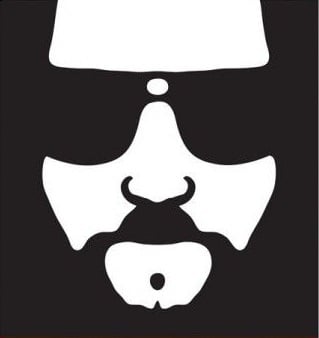I’ve been watching a good amount of Voyager recently and it made me notice how many episodes feature or hinge on faking-out the audience. So I went through the episodes and made a little list.
What I’m considering a fake-out: if the episode or scene itself is framed to make the audience think something is real when it isn’t real, or if the events of the episode or scene are non-real by the end of the episode (e.g. “it was all a dream” or “we went back in time and changed it so it doesn’t count”).
Voyager episodes with fake-outs: S1E3 Time and Again - Whole episode is undone by time travel S2E3 Projections - Whole episode is a fake-out, with a bonus fake-out fake ending S2E5 Non Sequitur - Whole episode undone by the end S2E8 Persistence of Vision - Multiple hallucination based fake-outs S3E15 Coda - Multiple fake deaths framed to be real, then a fake exit to the situation S3E25 Worst Case Scenario - Fake-out mutiny in the beginning S4E4 Nemesis - Almost nothing in the episode actually took place S4E9 Year of Hell Part 2 - Undid all of the episode (and the one before!) by the end S4E13 Waking Moments - Multiple fake awakenings S4E17 Retrospect - False memories presented as real to the audience (and, really, the episode itself does a poor job of “disproving” them in the end anyway) S4E23 Living Witness - Opening scene fake-out with holographic recreation evil crew S4E24 Demon - Fake Tom and Harry S4E25 One - Fake evil alien S5E6 Timeless - Entire episode undone by time travel S5E18 Course: Oblivion - Entire fake ship S5E24 Relativity - Events undone by time travel S6E3 Barge of the Dead - Multiple fake deaths, visions S6E4 Tinker, Tenor, Doctor, Spy - Opening scene fake-out by daydreaming Doctor S6E14 Memorial - Fake memories presented as real to audience S6E23 Fury - Episode events undone by time travel
(Edited with examples)
There were also quite a few episodes I left off that I felt were borderline fake-out. A few of the listed episodes are really good but the majority are distressingly lazy or inconsequential. In fact I remember watching the original run of Voyager and easily predicting when a new scene would be a fake-out after a while. For reference I also did a quick look at TNG’s fake-out episodes and here’s what I came up with:
Yesterday’s Enterprise Remember Me Future Imperfect Conundrum The Inner Light Frame of Mind Parallels Eye of the Beholder
Of which Yesterday’s Enterprise and Inner Light might not count, particularly in light of follow-up episodes (Unification and Lessons, respectively). Furthermore, of that TNG list I’d say they’re all pretty good except maybe Frame of Mind and Eye of the Beholder.
Has anyone else noticed this tendency of the Voyager writers? Or have feelings about how that device is used in the other series?
We used to talk about how Voyager ‘pressed the big reset button’ every week. It really did have that problem.
Limited armaments? No problem. Battle damaged ship? No problem. Dead or disappearing crew (Wildman)? No problem.

Some of this probably has to do with writing self-contained episodes. TV shows of this era were built so they could be shown in rerun syndication. You were able to air episodes out of order, or drop in on an episode without having to rely on having watched the one before it (unlike say, modern Marvel movies). There were ocassionally two parters or season cliffhangers, but the majority of eps stood on their own.
It’s a shame we didn’t get full seasons of some of these storylines, like “year of hell” — but that’s the compromise of getting a Star Trek show in that era. Everything has to be wrapped up or undone by the end of each episode.
I like this theory in general and I think modern TV could benefit from more slower paced bottle shows. Maybe the fake-out is just an easy device to write within those constraints. But why does Voyager use it so much more than other Trek shows?
For the plot.
If you play games, think of it as a roguelike. Several random failed playthroughs before barely managing a successful one.
Good metaphor, particularly for Cause and Effect, but that episode doesn’t qualify because every loop iteration actually happened.
I think season 2 had an over arching story subtly in the background. I’m sure they mentioned dwindling torpedo supplies and energy for replicators etc. and as each episode went by the numbers got less.
Then it was never mentioned again
It can be a bit of a cop-out, but if the other elements of the episode are solid, I don’t mind so much. If you’re a Doctor Who fan, then you’ve been beaten over the head enough with that trope to just roll with it.


Ha. Yeah, I enjoy a Doctor Who sometimes but I almost never actually retain them in my memory, and one reason might be because I know going in that they’re all going to end in some kind of hyper-contrived insanity. Which isn’t to say I don’t like them, just that it’s harder to remember stuff that has no connection to anything!
After years of knowing about star trek but never really sitting through it i am watching voyager for the first time.
Currently somewhere at the end of season 2
I actually really loved S2E3 projections, it may even be my premature favorite.
I don’t mind a it was all a dream scenario if its there to explore something or a character and i really feel i got to learn the doctor much better from it.
Now there was this other episode (treshold?) where they evolved into fucking lizards. (Not even cursing) and 5 minutes later everything was normal and that one still doesn’t sit right.
Projections is a perfectly good early Doctor episode. It walks so that later Doctor episodes can run and be even more amazing. For me, in re-watches particularly, it has at least one too many fake-out to make it really great (the false ending with Kes in sickbay). A few more on that list a really good too; it almost pained me to put Living Witness on there for example because I love it. I felt a little better about it when I went back and saw that almost all the TNG episodes that do fake-outs were good to great.
Voyager constantly uses the “everything goes back to the way it was” ending, but I didn’t count all of them because they’re mostly not designed to fool the viewers. Threshold is a fine example of that trope and a bad episode (though I softened to it a little bit listening to the Delta Flyers podcast; at least I get what they were going for now) so I’m right there with you on that one.
Threshold is an attempt at remaking The Fly (mostly the Cronenberg version.) Even though it’s a valiant attempt at body horror, the limitations of network TV really prevent it from reaching its full potential. From the same era, I’d say The X-files did that sort of thing better.
And in fact, the reset button ending is what completely neuters Threshold. The ending to Cronenberg’s The Fly is really powerful because of the final pathos and irreversibility. Instead of leaning on this, Threshold just goes incomprehensibly weird.
I think Star Trek’s most successful body horror episode is probably TNG’s Genesis (though I think Enterprise might have had a couple valiant attempts I should try to remember.). Genesis also suffers a little from its reset button, but since it doesn’t lean on pathos like Threshold and The Fly, the reset isn’t as annoying.
But in general I really feel like Star Trek should now be able to do good episodic TV which still shows real character progression and avoids total reset buttons. Some recent series leaned too far into serialization, but I’m hoping SNW strikes a good balance.



